Who is Cornel West? Famed, controversial scholar launches 2024 campaign
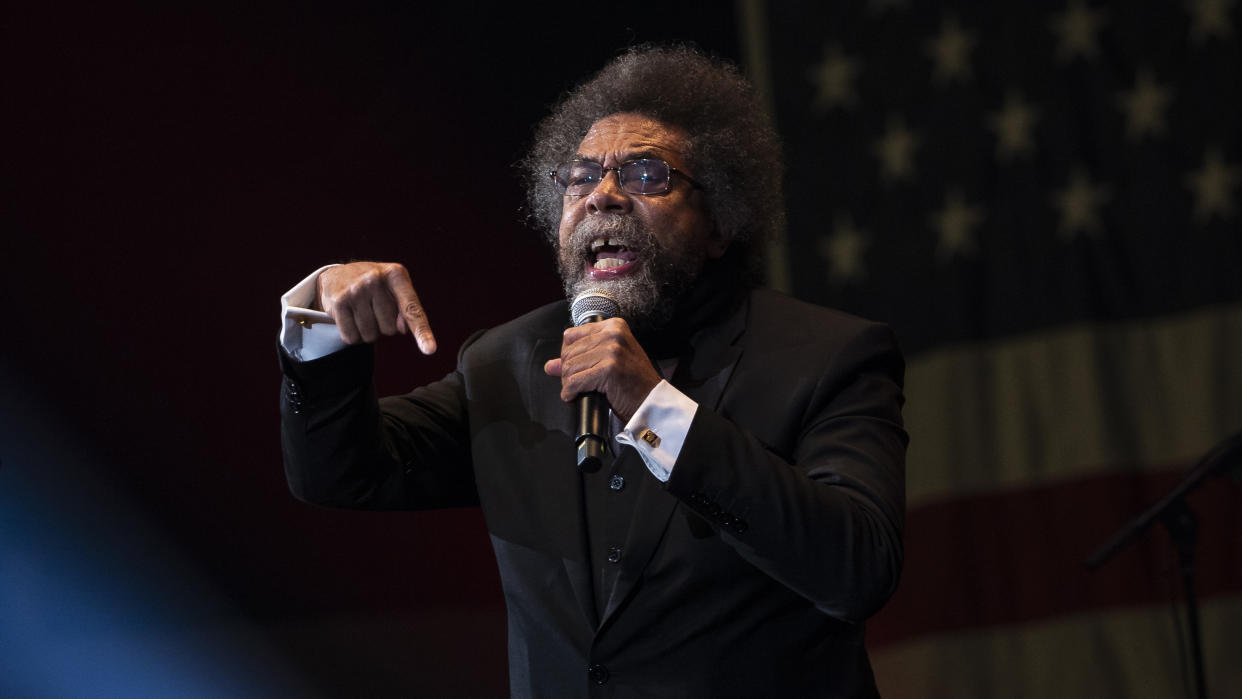
On Monday, famed Black studies scholar Cornel West announced that he was running for president on the People’s Party platform.
An outspoken radical, West said he was running “for truth and justice.” His proposals include ending all support to Ukraine, forgiving student debt and providing free housing and a living wage.
Though he stands virtually no chance of reaching the White House, West’s candidacy is an important cultural marker, as well as the latest chapter in a career marked by fame and controversy.
Educated at Harvard and Princeton, West is now on the faculty of the Union Theological Seminary in New York City. There, he holds a chair named for Dietrich Bonhoeffer, the German pastor who was murdered by the Nazis for criticism of their poisonous regime.
West also believes that it is his duty to speak truth to power.
“Neither political party wants to tell the truth about Wall Street, about Ukraine, about the Pentagon and Big Tech,” he said on Monday.
Read more from our partners: Professors Cornel West and Robert George on cancel culture's push to remove monuments, rename buildings
A rising public intellectual
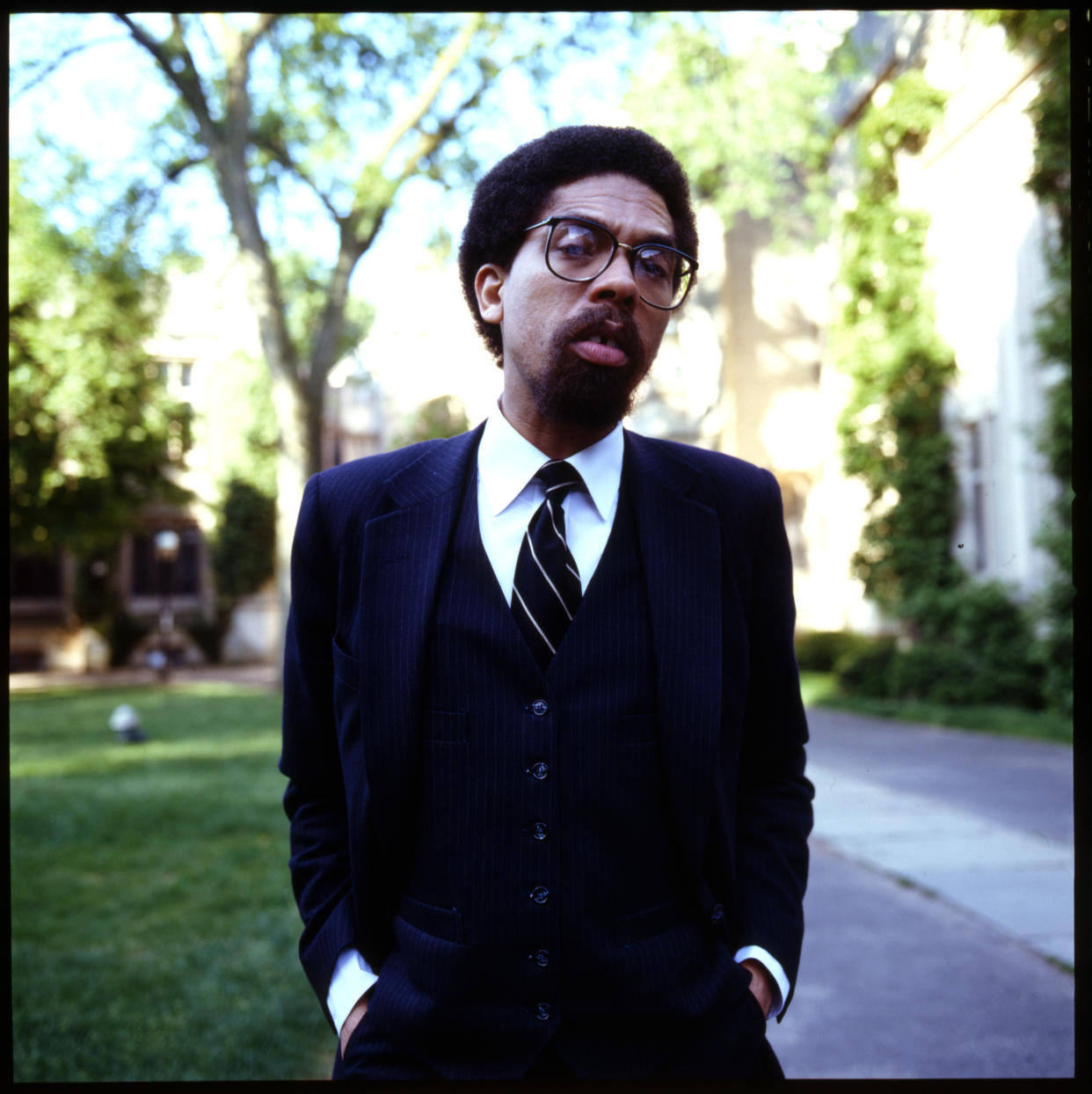
West first gained fame for his book “Race Matters.” The slim, powerful volume was published in 1993, on the one-year anniversary of the civil unrest that swept through Los Angeles after a jury failed to convict the four police officers who had beaten Rodney King during a traffic stop.
At the time, West was a Princeton professor largely unknown to the public. That would quickly change. Eloquently arguing with conservatives and liberals alike, West called on Americans to overcome the toxic racial divisions Los Angeles had laid bare the year before.
“We simply cannot enter the twenty-first century at each other's throats, even as we acknowledge the weighty forces of racism, patriarchy, economic inequality, homophobia, and ecological abuse on our necks,” West wrote in his customary style, which could be provocative and prophetic — sometimes in the same paragraph.
Reception was glowing, with the New York Times comparing West to Ralph Ellison and James Baldwin, the leading Black writers of the 20th century.
Read more from our partners: Why I teach a course called 'White Racism'
Controversy at Harvard
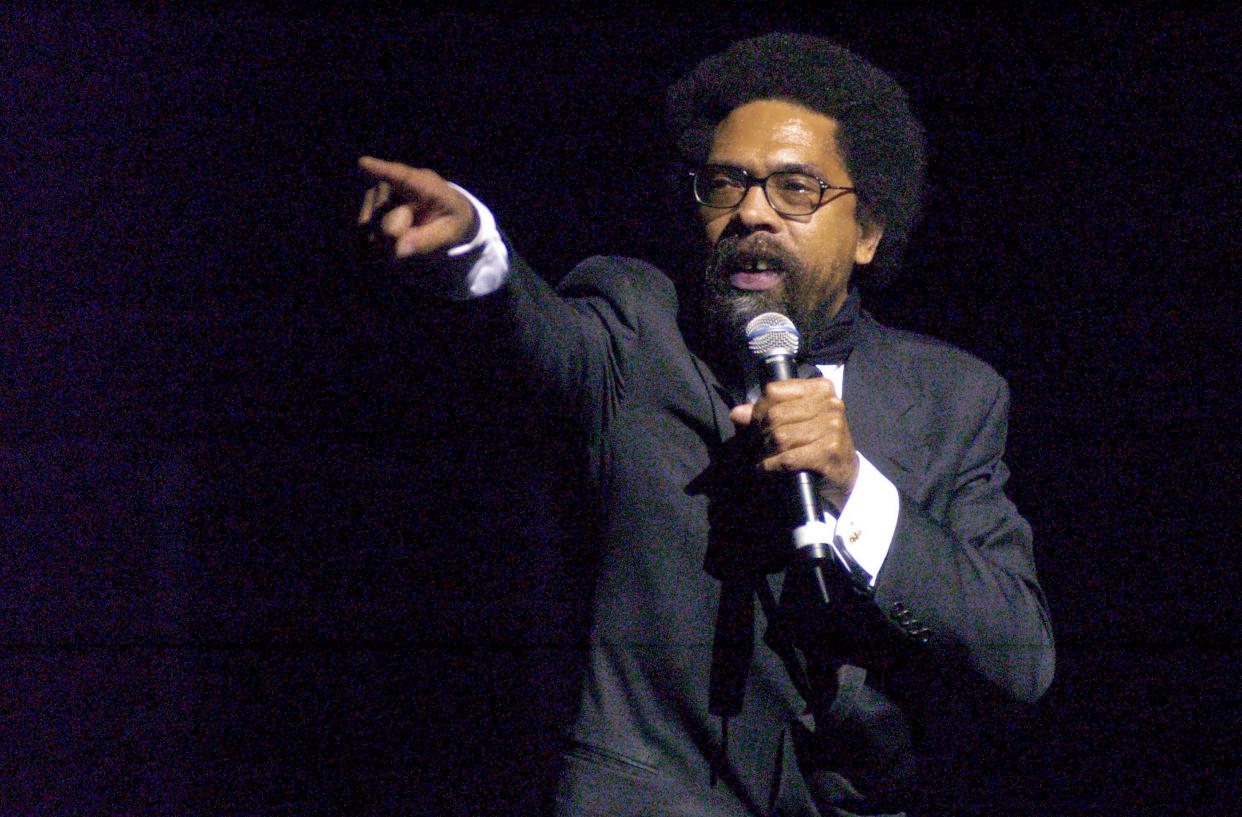
In 1994, West was lured away from Princeton by Harvard, whose president at the time, Neil Rudenstine, was building an all-star African American studies department.
Exhausted by his job, Rudenstine retired in 2001. He was replaced by 46-year-old economist Larry Summers. Like West, Sommers was brilliant, self-assured and not afraid to speak his mind. In other words, the two were bound to clash.
They did so in a 2001 meeting, during which Summers accused West of devoting too much time to activities unrelated to teaching Harvard students.
Since the publication of "Race Matters," West had become the rare public intellectual known outside the academy. He actively stumped for presidential candidate Bill Bradley, a former professional basketball player and U.S. senator from New Jersey, and he later joined the Rev. Al Sharpton’s presidential exploratory committee.
He also released a hip-hop album, “Sketches of My Culture.”
West taught one of the most popular courses at Harvard, an introduction to African American studies. He held one of Harvard’s prized university professorships, but he lacked the protection (and validation) of tenure.
Insulted by Summers, West returned to Princeton in 2002.
He would return to Harvard in 2017, only to resign again in 2021, charging that he was denied tenure because of his support for Palestinian self-determination.
Read more from our partners: Claudine Gay becomes Harvard University's first Black president
No friend of the Obama administration
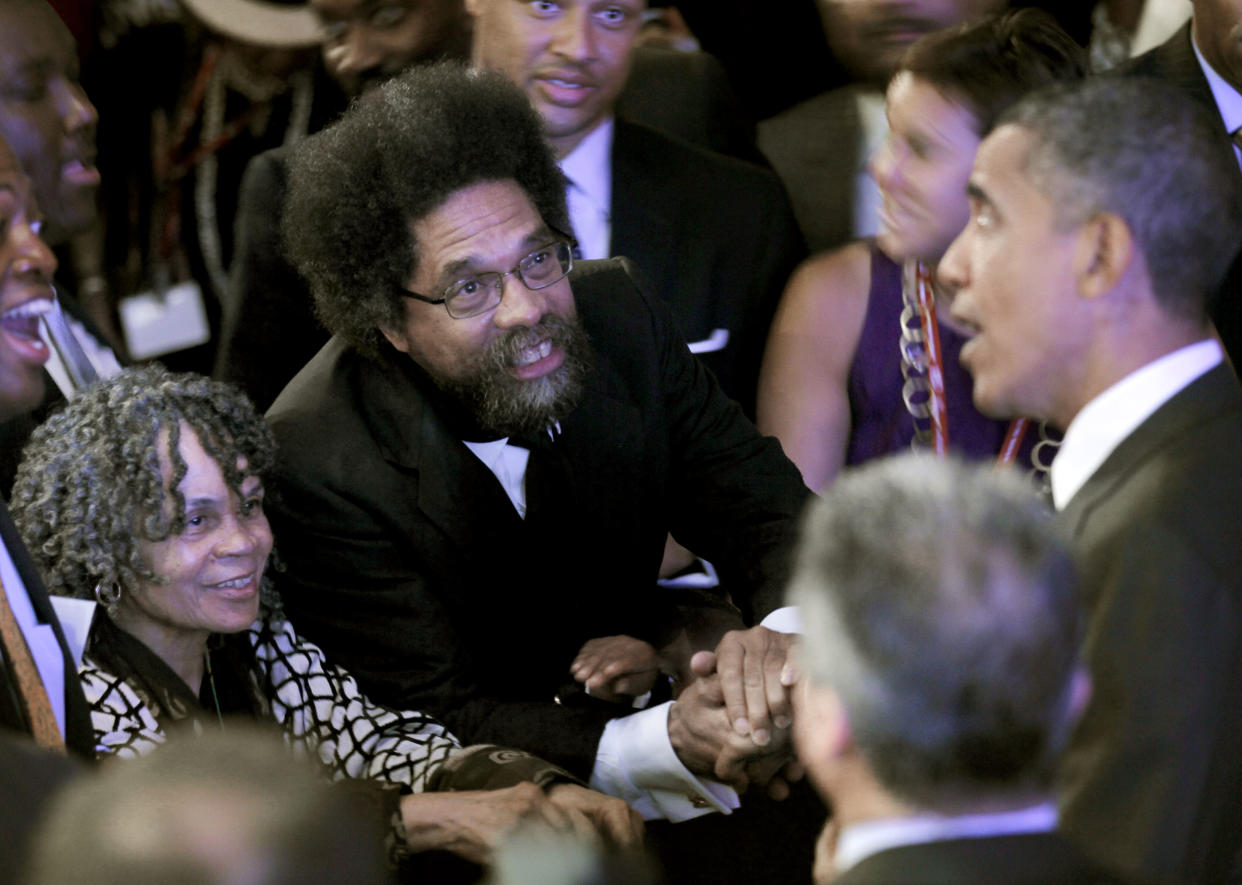
A longtime critic of American imperialism, West opposed the Bush administration and its global War on Terror. Yet the election of the first Black president did not pacify him. Instead, West argued that Obama was not the transformative figure he had promised to be during his 2008 campaign.
“Black folk can't be blindsided by Obama's pigmentation and historical symbolism. What I'm saying is, I wish he could be more Martin Luther King-like,” West said in a 2010 interview with Playboy, adding that in his view, the new president “has had to downplay his blackness to appease the white moderates and independents and speak to their anxieties.”
By the end of Obama’s second term, even some of West’s former allies had grown tired of his harsh attacks from the left. In a scathing 2015 article for The New Republic, Black studies professor Michael Eric Dyson, a onetime friend of West's, worried that the Princeton professor had taken a “dramatic plummet from his perch as a world-class intellectual.”
Read more from Yahoo News: New poll shows Americans at odds over Black history
A progressive without compromises
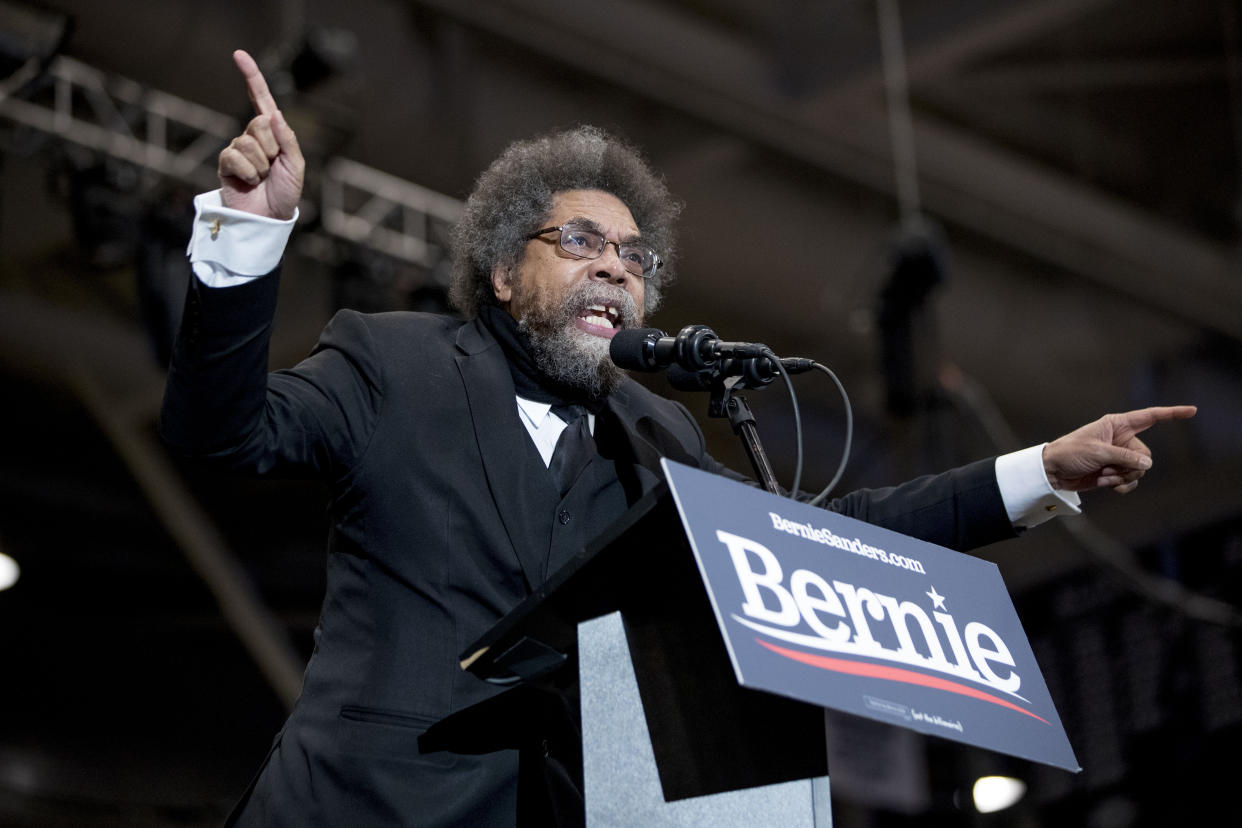
In many ways, West’s uncompromising style has more in common with today’s young progressives than with the more moderate liberals who came of age during the Clinton years.
Donald Trump’s election in 2016 only intensified his conviction that deep problems in American society remained unaddressed. “Trump is as American as apple pie,” West wrote in a 2017 social media post. “He’s an expression, an articulation, an extension of so much of the worst of America’s past and present.”
In recent years, West has been a regular presence on Democracy Now!, the left-wing news network. He has also continued to speak on college campuses. Shortly after the 2020 presidential election, West told a University of Pennsylvania audience that he had voted for Biden over Trump because “a fascist catastrophe is worse than a neoliberal disaster.”
Read more from our partners: “Cornel West’s Presidential Bid Draws Heated Response”
